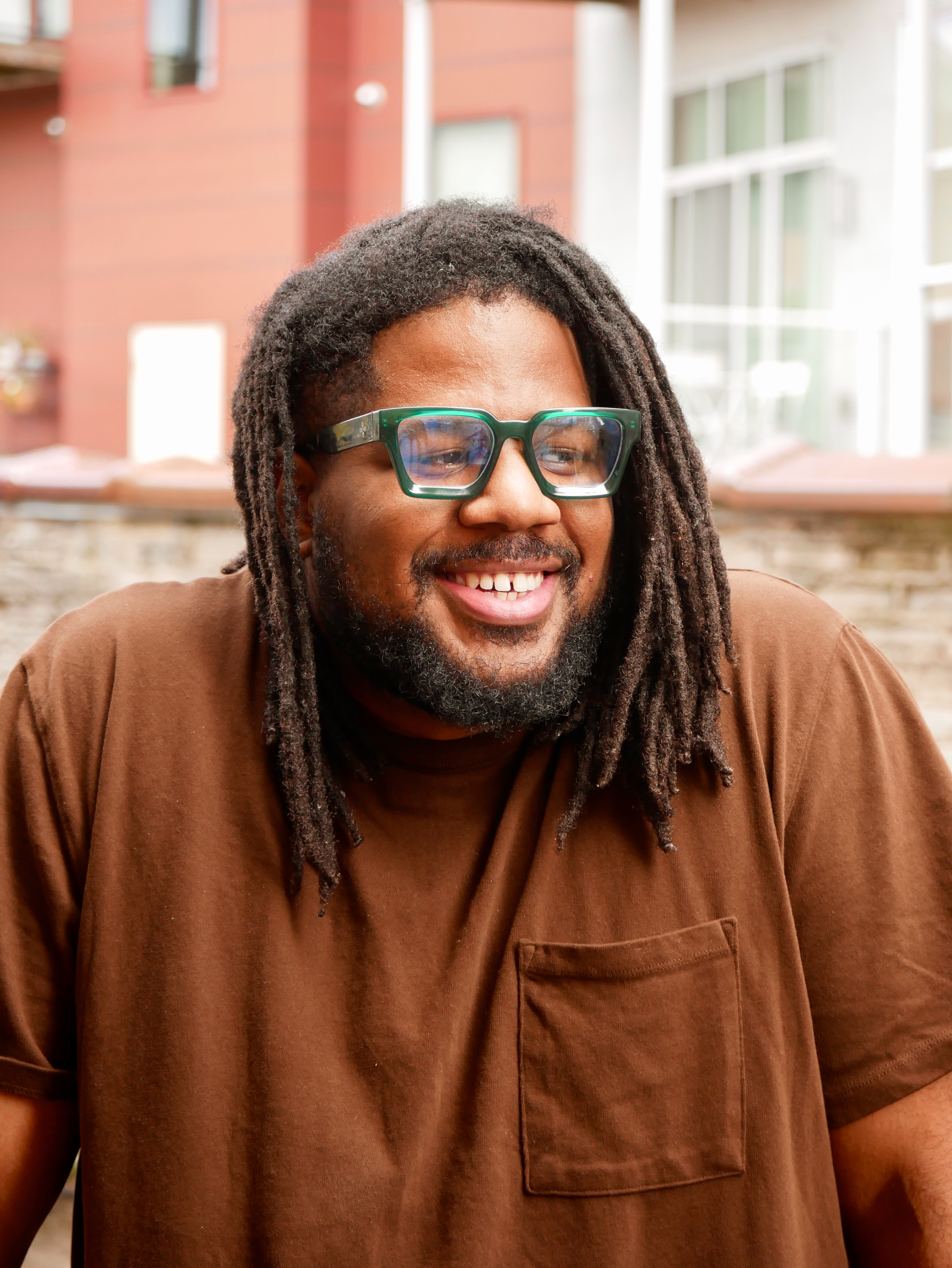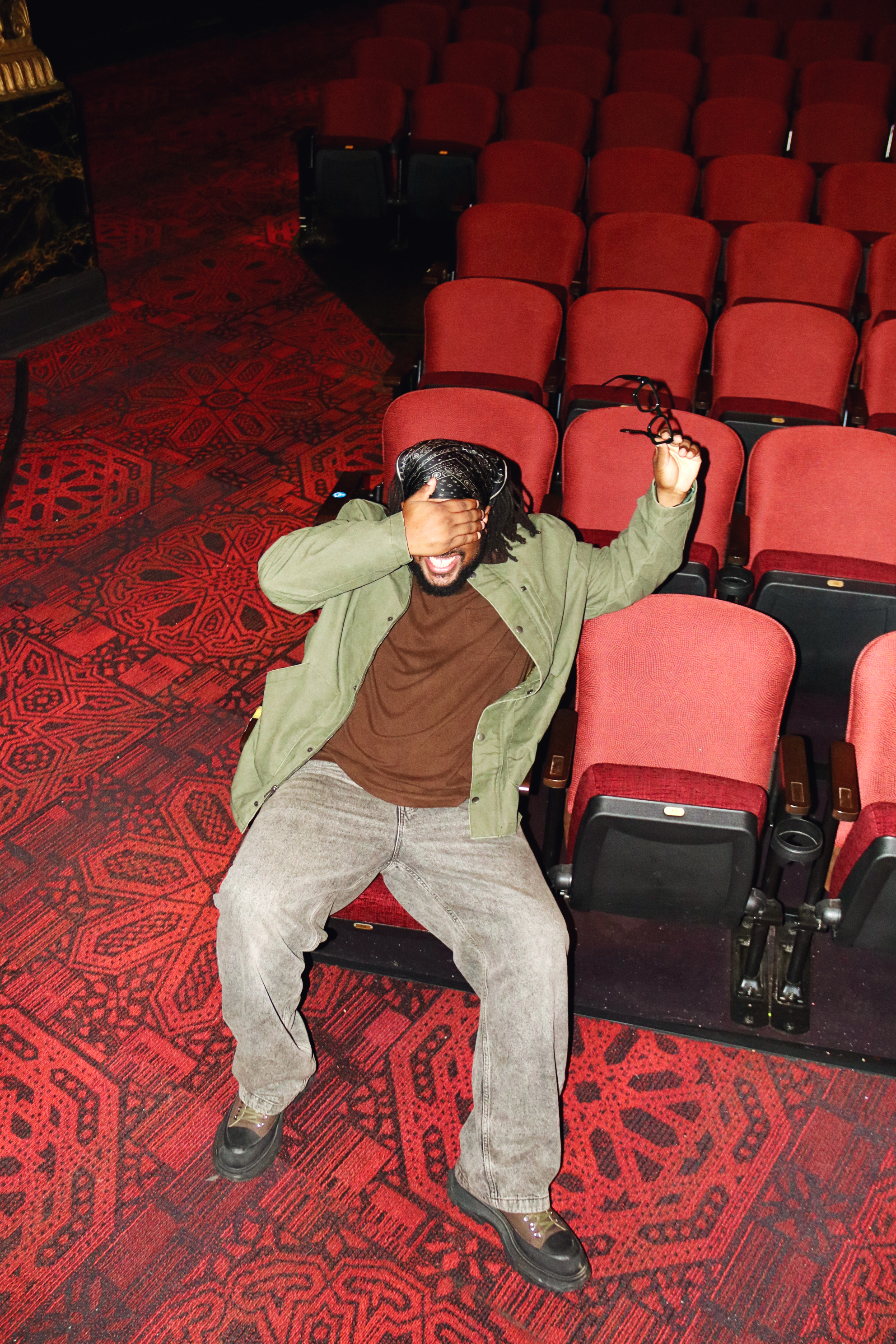Paving Your Way In The Film Industry With Tyree Pope | By /CW Guest Writer Jolee Mallmann
/I met Tyree Pope years ago while we were both students in the Radio-TV-Film program at the University of Oshkosh Wisconsin. While we were taking classes and learning how to enter the film industry, Tyree was already working hard on developing his own creative projects. When I moved to Milwaukee looking for media work, I realized just how much of the film and television industry in the city was saturated with UWM film graduates. It was hard to find work on sets and break into the scene here with a background outside of the city. When I looked around for fellow graduates trying to make their way in the industry, Tyree consistently stood above the rest.
The difference between someone like Tyree and creatives who gave up on trying to make Milwaukee work for them, is the purpose and the drive to just do it no matter what. Tyree Pope developed his own podcast series Kickin’ It With Tyree back in college, and carried that project and many others through to higher levels as his own career in filmmaking began to flourish. He didn’t wait for the world around him to be ready for his work, he made it happen and in doing so the industry caught up to Tyree where he was at. His drive, creativity and vision brought him to working on press for Sundance Film Festival, developing his own Comic Book series Fair Fight, covering festivals like Rolling Loud and securing interviews with filmmakers like Jesse Eisenberg.
When I look at filmmakers and creatives like Tyree, I think about how it takes a genuine love for the game to secure longevity in the world of film and media. You can wait for the world to choose you and be disappointed until it’s finally *your time* or you can choose yourself, make it happen and let the world realize what they were missing before they saw your spark. Tyree was going to shine regardless, Milwaukee was just clever enough to let the light in.
Where are you from originally and where are you living and working now? Do you feel like any parts of your upbringing have stuck with you to this day as a filmmaker?
I’m from Milwaukee, Wisconsin, and that’s still where I live and work today. Growing up here shaped the way I see the world, the way I walk, the way I talk. It's a city that carries a lot of history, culture, and challenges. Also with going through art school here as a child. Those experiences definitely stuck with me and informed the kinds of stories I want to tell as a filmmaker, especially stories rooted in community, authenticity and just truly being unapologetically yourself at all times.
You went for film at UW Oshkosh and now you’re working out of Milwaukee. In your experience what is the culture of filmmaking like in both of these cities? Any similarities or major differences?
UW Oshkosh was where I learned the fundamentals and experimented without fear. I didn’t get the support on my projects from the film community in UWO as much as I wanted so I made it my journey to do it on my own. To make these ideas happen whether it had the support or not. It was a great space to experiment and grow though and find what avenues I wanted to go down. Milwaukee is more about collaboration and building with other creatives who are just as hungry. The biggest difference is that Milwaukee has a tighter community feel and people really rally together here whereas Oshkosh felt more like a learning environment. I expected most people in the film program to never pick up a camera again honestly.
You do work in animation. What inspired you to start Fair Fight Comics? What has the journey of bringing that project to life been like?
Fair Fight Comics came out of just pushing myself to tell the story that was in my head as I sat in bed in Taylor hall at UWO. Originally as an animated pilot script and developed into a comic book later on. I’ve always loved comics and animation because they let you create whole worlds without limitation. The journey has been challenging but rewarding building a universe, developing stories, and slowly seeing it all come to life has been like planting seeds and watching them grow. Fair Fight Comics will continue to grow and flourish into new avenues even if that avenue isn’t comics.
How did you get your start in filmmaking and what was your inspiration to start in the first place?
I got my start in film by being a writer and writing stories. I wrote my first short story in 7th grade at Lincoln Center of the Arts and always wanted to do something with writing and creating something people could identify with. I’ve always felt somewhat of an observer of the stories around me and the things I’ve learned that have happened throughout history whether that be through mythology or religion. I think about how I can tell the lost stories of our ancestors in a modern way. As far as behind the camera I started with photography and understanding the frame and moved into how I could tell a story within a frame. Then I started thinking about how I could help artists like me and I created Kickin’ It with Tyree and that opened the doors for me creatively and is still opening doors for me to this day with over 100 interviews. My inspiration was always the creating ideas that film could move people, create conversation, and spark change. I may not be the flame, but I can be the spark.
What is your favorite genre of films to watch in general and what are your favorite kinds of films to make?
I watch a little bit of everything. I love old films from Double Indemnity to Cooley High. I watch horror movies, comedies, thrillers, coming of age stories. I love making genre movies and creating things based on a specific genre and feeling I am trying to provoke whether that be fear, hate, love, happiness or sadness. The science of provoking emotion is something I’m always working on and there’s someone out there that wants to connect to that and see themselves in something on screen.
You’ve worked on multiple local short films, features and series. What are some of the projects you enjoyed working on the most and why?
Every project has taught me something, but working on my short film AL taught me that not everything is always going to be perfect and the way you set out for this film to be in the beginning is not always how it’s going to end and the way I was able to flip the script, rewrite, and cast the week before shooting showed me how quick on my feet I can be in tough situations like that.
What’s your favorite role to play on set and why?
Directing is where I feel most at home. I like being able to see the big picture while also working closely with actors and crew to bring out the best in everyone. It’s where I get to merge vision and collaboration. In most of my projects I have had to become producer, editor, director etc. So I feel comfortable in the chaos of most roles.
Who are a few filmmakers you find major inspiration in?
Spike Lee for his ability to create a moment and have you live in it. Do The Right Thing is a moment in time that when you watch the film you're engulfed in the time, place and the now. Rick Famuyiwa for his ability to tell coming of age stories from The Wood to Dope about young black men from the hood that didn’t involve tragedy and heartbreak but overcoming their environment and excelling, falling in love, pursuing education in spite of that. Micheal Schultz made Krush Groove the film that I watched time and time again as a kid, Cooley High one of the first films I remember watching and loving as I watched over and over again, Car Wash, The Last Dragon! His influence in African American filmmaking is and will always be felt in our stories and creations.
Do you have any fun memories from working on film sets? Could you describe any challenges or learning experiences from your time on different sets?
Some of the best memories are just the late nights when everyone’s tired but still laughing and pushing through. Challenges always come up, things not going as planned, weather messing with shoots, but those moments teach you adaptability. The biggest lesson I’ve learned is that filmmaking is problem-solving in real time. Cause if it can go wrong it will.
Do you have any advice you’d give to the younger version of yourself who was first starting out in filmmaking?
Don’t let anyone, even yourself, put you in a box, just because you are doing weddings right now or making music videos or podcasts. Doesn’t mean you have to stay there. You are allowed to expand and create with the freedom you once had as a child. Don’t let anyone take that joy and love for film and creating away from you.
If you see it, you have it. Just go out and take the steps to grab it. Some things take time, but with time comes experience, connections, and lifelong collaborators that you’ll go through the fire with. Go to film festivals, don’t be a hermit. Find a way to make the things you want to make even if you have no one to make them with.
What are you looking forward to next in your career in film? Do you have any projects in the works or things you’re excited to try next?
I’m excited about continuing to build Lake $hore Dreamers and take projects to a larger scale. I’m working on a couple of scripts for TV shows and Feature Films that I want to take on in the next 1-2 years. In the meantime, I am working on producing short films that I wrote in the spring, an animated short. Then the end of my comic trilogy Fair Fight Vol. 3 which is in production as we speak. I am also taking on animation myself and attempting to learn it and produce works on my own.
Where can we find your work?
You can find my work through Lake $hore Dreamers. Website coming soon, but in the meantime, you can follow me on Instagram @tyreepope3 for updates, behind-the-scenes, and upcoming projects.
Into independent film? Want to learn more?













